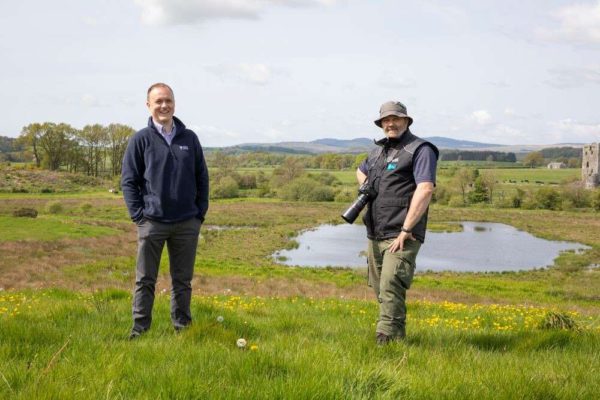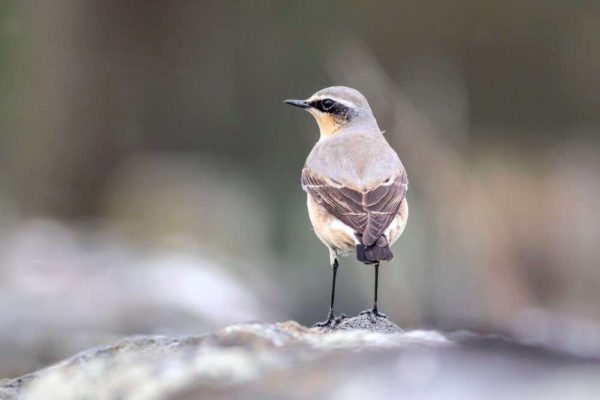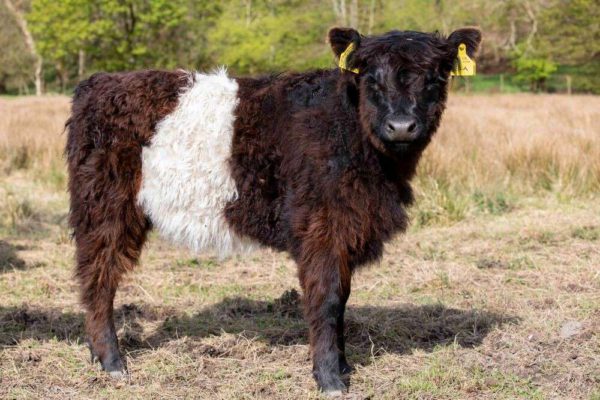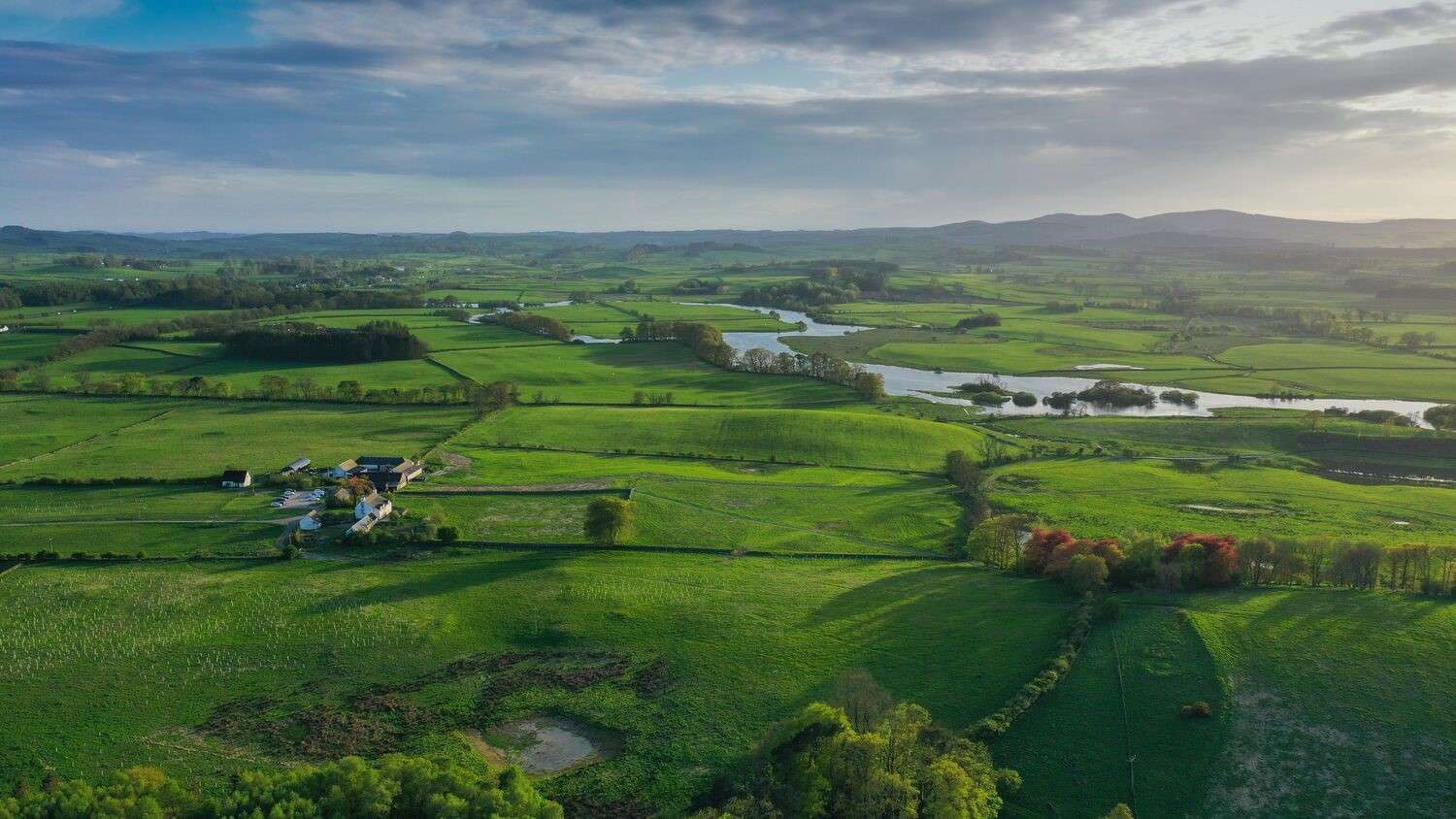A project to transform a disused dairy farm in southwest Scotland is attracting wildlife to the area and inspiring change across the country.
By: Sarah Burnett
Located in the heart of Dumfries & Galloway, the Threave Landscape Restoration Project has seen 81 hectares of land transformed from a disused dairy farm to a haven that features wildflower meadows, rich wetlands, and growing native woodlands that are buzzing with insect and bird life, including species rarely before seen in the area.
The project has inspired other places we care for, with teams at Culloden, Burg, Iona and Ben Lawers all looking to adapt their conservation grazing approach to utilise new GPS software in use at Threave. Holistic planned grazing, such as that done by the 14 Belted Galloway cattle on site, increases biodiversity by creating vegetation at different heights, which encourages a range of wildlife and allows wildflowers to grow. The project uses pioneering GPS technology, located in the collars of the cows, to allow remote tracking of activity via smartphone to reduce the chance of over-grazing.
A cohesive, open space

Not only is the project inspiring large-scale changes at key historic sites across Scotland, it’s also generating change locally. Following a visit from Gelston Primary School to Threave, pupils have worked with Engagement Ranger Mary Smith to create their own wildlife garden in the grounds of the school. Since the project – supported by HSBC UK and the Galloway Glens Landscape Partnership Scheme and using funds from the National Lottery Heritage Fund – began in 2021, we have been giving nature a helping hand to encourage wildlife and biodiversity across the site. An innovative project from the beginning, it captures a new way of caring for the land which moves away from the more traditional prescriptive measures, to one which lets nature and the land itself lead the way.
Taking what was once a segregated landscape, our team at Threave has created a cohesive, open space on which natural heritage can flourish across wetland, woodland, wild meadows and grass-scapes. 210 meters of new boardwalks have been introduced to allow visitors to cross the re-created 7.3 hectare wetland area and discover species new to the site, including the shoveler duck. A different approach to woodland management, which saw a shift from commercial forestry plantation woodlands to replanting methods and native woodland generation, has seen 2,000 native trees planted between November 2022 and March 2023 alone. By the end of the project, the land will be home to 16,000 trees. Backing our commitment to increasing accessibility at all of our places as part of our vision of nature, beauty and heritage for everyone, we also upgraded the core paths around the land in partnership with the Galloway Glens Landscape Partnership Scheme. The wider pathways not only connect to the local town but will also allow wheelchairs and prams easier access. Currently the area receives between 800–900 visitors each week, with people of all ages keen to spot the range of wildlife now living on the land, including ospreys, wild fowl, greylag geese and sand martins.
Nature will flourish

Although the restoration at Threave is a long-term project spanning 100 years, the difference in the land approach is already reaping rewards: this month alone a pair of wheatear birds were seen using the reserve; curlew have been spotted on the wetlands; all 19 ponds and scrapes were occupied all winter with wild fowl; and three shoveler ducks took up home on the ‘great scrape’. Skylark have also been displaying on the site over the last month in a direct result from the change in land use, as a species which searches for long grass for nesting.
Gareth Clingan, Operations Manager for Dumfries & Galloway, said, “The Threave Landscape Restoration Project is a really different way of thinking about looking after land, one that lets nature recover and monitors the changes over a 100-year period, with a bit of a helping hand from the National Trust for Scotland. We hope our approach will inspire others to think about how they can make changes that mean nature will flourish. This is so important in this time of climate and biodiversity crises. Another great thing about our work here at Threave is how easy it is for people to see it firsthand. We’re just off the A75 and only five minutes away from the heart of Castle Douglas, so everyone can come along and see the difference our conservation charity’s work here has made, and enjoy the nature, beauty and heritage of this lovely part of Scotland. Not only have we created flourishing eco-systems, teeming with flora and fauna, but we’ve also created local job opportunities with the recruitment of two new rangers, alongside several volunteers who are making a big contribution to the project. If this is what we can see after just two years, imagine the transformation in 2121.”

Head Ranger David Thompson added, “This project has really put our charity and our conservation credentials on the map. We’ve been talking to folk from all over the world, and especially pupils and students, which is essential if we are to grow the next generation of conservationists. It’s been really rewarding sharing our specialist skills and knowledge. As a team, we’ve also learned a lot and have a much deeper understanding of, and appreciation for, this special place.”
Text and images are courtesy of the National Trust for Scotland. For more information on the Trust or to help them protect Scotland’s heritage see: www.nts.org.uk

